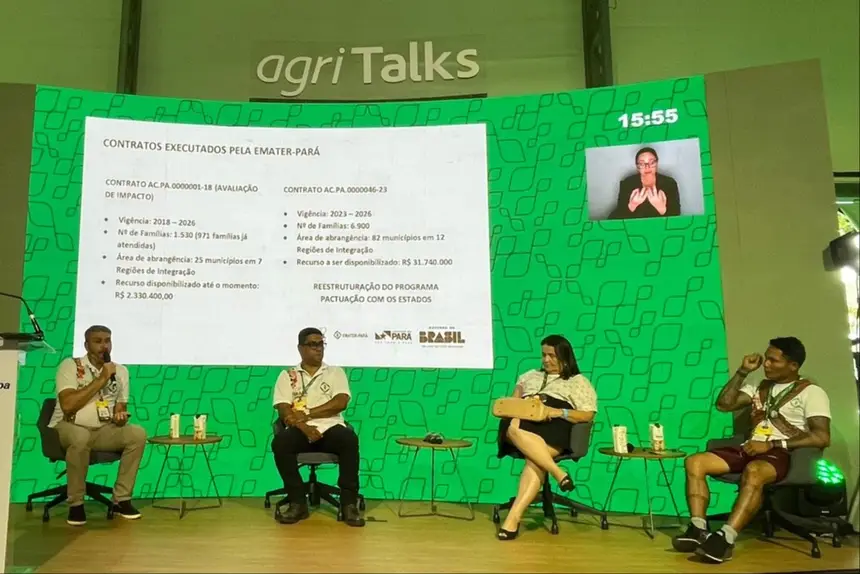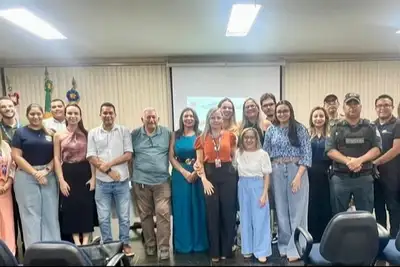At COP30, the Government of Pará presents results of the poverty combat program in rural areas
The program is in partnership with the Federal Government and is aimed at vulnerable families. Priority is given to indigenous peoples, quilombolas, and women.
In a talk-show format, the Government of Pará, through the Technical Assistance and Rural Extension Company of the State of Pará (Emater), presented to the audience of the 30th United Nations Conference on Climate Emergency (COP30), in Belém, on Monday (17), a work that has been restoring dignity and citizenship in the rural areas of Pará: the Rural Productive Activities Promotion Program (Fomento Rural) is a partnership with the Ministry of Development and Social Assistance, Family and Fight Against Hunger (MDS) that sponsors family agriculture enterprises of vulnerable families.
Since 2024, with the official adherence of the Government of Pará to the public policy, Emater's direct service goals have directed special attention to indigenous peoples, quilombolas, and women. From that period until the end of this year, the current contract covers 1,200 families from 62 municipalities, with an amount exceeding R$ 5.5 million. In practice, the strategy is to combat hunger and poverty in the countryside, through technological diffusion, monitoring by specialists, and financial transfers: in this case, R$ 4,600 per beneficiary, without the need for repayment.
Agritalks - The event “Innovation and Socioproductive Inclusion of Family Farmers in the State of Pará: successful experiences of the Rural Promotion Program” took place in the Agritalks arena, in the Agrizone, at the headquarters of the Brazilian Agricultural Research Corporation (Embrapa), in the Marco neighborhood.
“In Pará, the Program gained a differentiated strength because it dialogues with diverse realities - islands, riverside communities, quilombola communities. The result is more than an increase in income: it is socioproductive inclusion, innovation, and the protagonism of families,” announced the moderator Cristiane Corrêa, a veterinarian with a master's degree in Family Agriculture and Sustainable Development, and technical coordinator of Emater.
In addition to the technical advisory and management teams from Emater, represented by forest engineer Márcio Nagaishi, a master in Forest Sciences, and agronomist engineer Antônio Andrey Matos, a specialist in Management and Technology in Seed Production, the conversation included Martha Pina, a representative of the Secretary of Agricultural Development and Fisheries (Sedap), and Haroldo Poxo Munduruku, coordinator of the Topaga Emanaeyu Indigenous Association from the Sai Cinza Village, in Jacareacanga, in Tapajós.
In Jacareacanga, the Rural Promotion has been a tool for transforming the socioeconomic reality of the munduruku villages for three years, with resources being applied in the acquisition of equipment and restructuring of systems, such as flour houses.
“The Rural Promotion has come to add to a historical presence of Emater with the indigenous peoples of the municipality: the activities include raising poultry in the villages, flour production, planting guaraná, and planting coffee. This production is sold in the municipality and also in the PAA [Food Acquisition Program] and Pnae [National School Feeding Program], with the collaboration of the City Hall,” points out the head of the Local Office of Emater, Raimundo Delival Batista, an agricultural technician.
Text: Aline Miranda (Emater)










